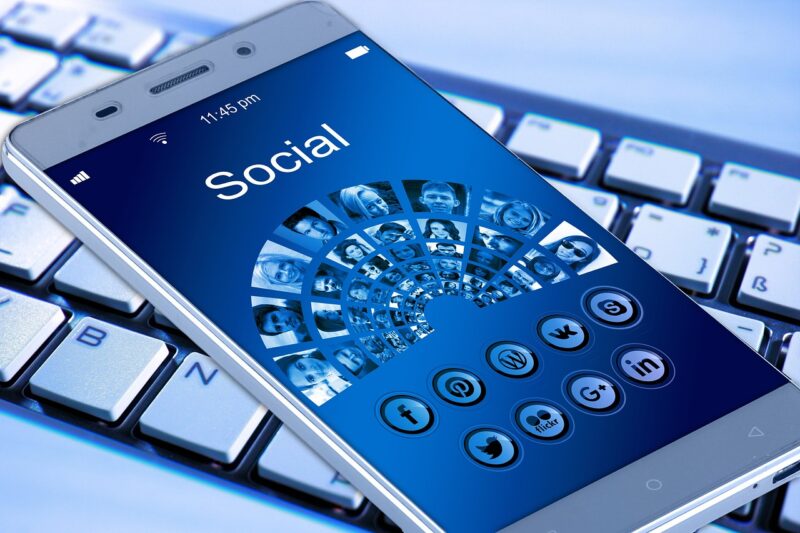
Taking a break from social media can have profound effects on your mental health, productivity, and relationships. While social media connects us with friends and trends, excessive use can impact our well-being in subtle and serious ways. Here’s a look at what happens when you quit social media for 30 days and the changes you may experience along the way.
1. The Initial Withdrawal Phase (Days 1-7)
During the first week, you may feel the effects of social media withdrawal. If you’re accustomed to checking your phone frequently, this phase can feel challenging.
Common Symptoms of Withdrawal:
- Urge to check your phone out of habit.
- Anxiety or FOMO (fear of missing out) as you disconnect.
- Restlessness or boredom without regular digital stimulation.
Tip: Use this time to set goals for your detox, like focusing on a new hobby or increasing face-to-face interactions.
2. Improved Mental Clarity and Focus (Days 8-14)
As you adapt to life without social media, you may notice improved mental clarity and focus. The constant influx of notifications and content can clutter the mind, so removing these distractions allows your brain to settle.
Benefits Noticed:
- Better concentration on tasks at hand without interruptions.
- Less mental fatigue and more energy throughout the day.
- Reduced tendency to compare yourself to others.
Why It Matters: Improved focus can boost productivity, allowing you to fully engage in your work, hobbies, and personal goals.
3. Enhanced Mood and Reduced Anxiety (Days 15-21)
Social media often triggers negative emotions, from FOMO to self-comparison. Studies show that reducing social media use can help lower anxiety and increase feelings of well-being.
Positive Changes in Mood:
- Lower levels of anxiety, especially related to social comparison.
- Reduced exposure to negative news and online conflicts.
- Greater sense of peace without constant updates.
Tip: Replace social media with relaxing activities like reading, exercising, or spending time outdoors.
4. Increased Free Time and Productivity (Days 22-30)
By the final week, you’ll likely notice a significant increase in free time. Without the constant lure of scrolling, you can redirect this time toward more fulfilling activities.
How You Can Spend Your Free Time:
- Engage in hobbies like cooking, painting, or music.
- Dedicate more time to reading, learning, or personal growth.
- Spend quality time with family and friends without digital distractions.
Why It’s Important: Reclaiming your time allows you to be more intentional with your day, enhancing your sense of fulfillment and purpose.
5. Strengthened Relationships and Social Skills
Without social media, you may find yourself relying more on in-person interactions. This can improve relationships and develop stronger social skills as you prioritize face-to-face communication.
Relationship Benefits:
- More meaningful conversations without the interference of notifications.
- Better listening skills and attentiveness in interactions.
- Enhanced emotional connections with friends and family.
Tip: Use this time to reconnect with people in your life through calls, meet-ups, or letters.
6. Reduced Reliance on External Validation
Social media often fuels a desire for likes and validation. By stepping away, you can learn to rely less on external feedback and more on your inner sense of worth.
Signs of Reduced External Validation:
- Less need for approval or attention from others.
- Increased self-confidence based on personal achievements, not online reactions.
- More contentment and self-acceptance without comparison.
Why It Matters: Building internal validation fosters resilience and helps you develop a stronger sense of self.
7. Reflections on Re-Integrating Social Media
At the end of 30 days, you may want to re-evaluate your relationship with social media. Consider what worked well during the break and what changes you want to make to create a healthier balance.
Strategies for Healthy Re-Integration:
- Limit screen time by setting daily or weekly usage goals.
- Curate your feed to focus on positive, inspiring, or educational content.
- Turn off non-essential notifications to reduce digital noise.
Tip: Reflect on the benefits of your break and aim to incorporate those practices into your social media habits.
Conclusion
Quitting social media for 30 days can lead to a range of positive changes, from increased focus and productivity to improved mental health and stronger relationships. While social media offers value, taking breaks allows you to regain control over your time and mental space. Use this experience to develop a healthier, more intentional relationship with social media moving forward.








